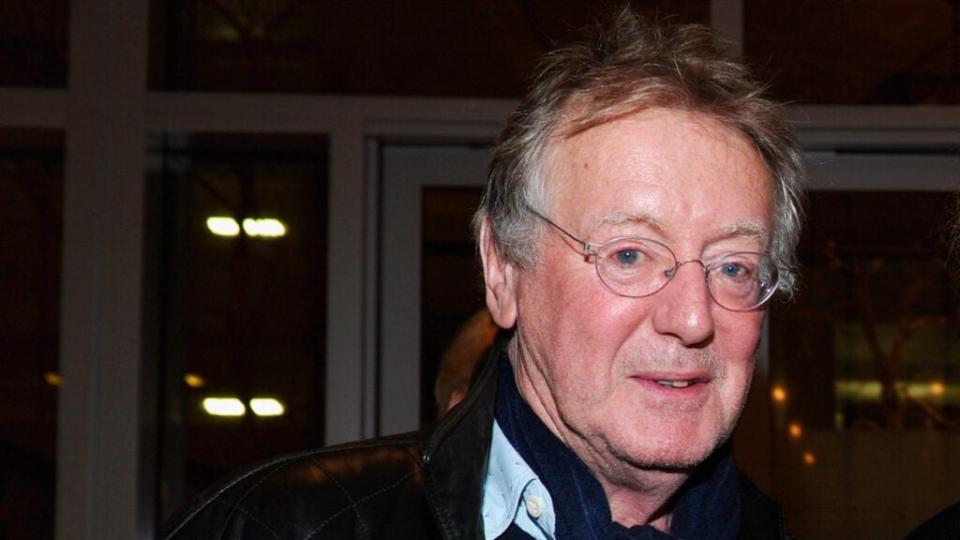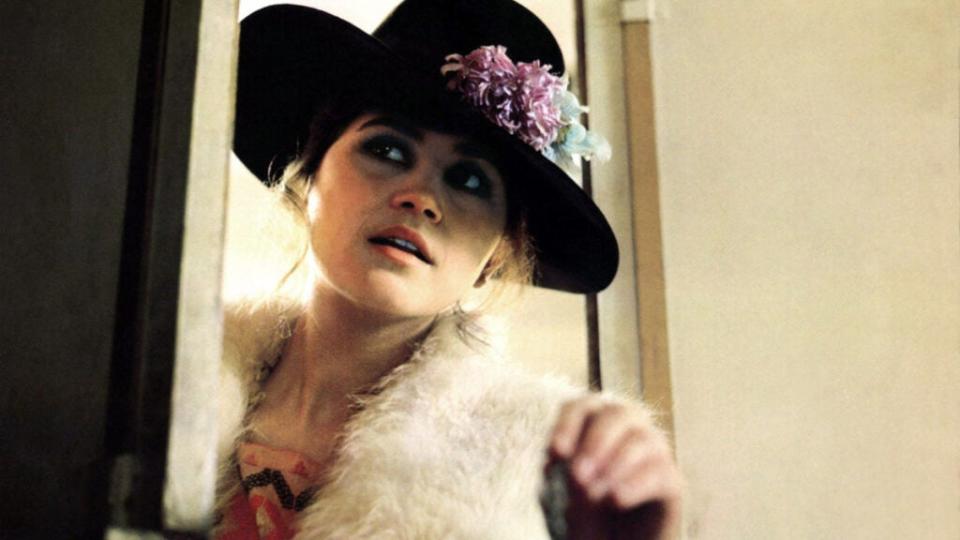Gather ’round, kids, and let’s tell a tale of a time long ago, when movie screens weren’t filled with just superheroes and special effects. A time when parents policed what you were watching for fear of an awkward conversation.
We’re referring, of course, to sex.
From “Basic Instinct” and “Eyes Wide Shut” to “Body Double,” “Risky Business” and “9 ½ Weeks,” on-screen nookie was once a staple of cinema, as much a part of the moviegoing experience as buttered popcorn.
But Hollywood has been strangely celibate for at least the last decade. There are no specific statistics on the declining rate of sex scenes in movies: The closest TheWrap could find was a 2022 report that found R-rated features, where you often found sex scenes, had dipped to a mere 30% share of releases. But if you look at films in theaters today, even R-rated ones like “Joker” and “It,” you’ll more often than not find violence, profanity or gore more than a nude body or a sex scene.

“You don’t want to wallow in anything,” Adrian Lyne, director of such erotic classics as “Indecent Proposal” and “Fatal Attraction,” who laments the disappearance of on-screen copulation told TheWrap. “If it’s inherent to the story, why cut it out? Why be coy about it?”
So, what happened? Why, after decades and decades of selling sex on screen, is Hollywood suddenly so turned off?
Blame Gen Z
People born between the late 1990s and early 2000s — Gen Z or Zoomers — are generally considered the most politically minded and socially aware generation. They’re also having less sex, at least according to a November 2021 BuzzFeed article.
Perhaps not surprisingly, Zoomers are not huge fans of on-screen sex, either. In fact, some of them have been pushing online for a return to the Hays Code, Hollywood’s notorious list of “dont’s” that dominated American films from the 1930s to the 1950s, until the sexual revolution exploded onto the big screen in the 1960s.
“It’s misplaced nostalgia,” said Karina Longworth, whose podcast about Hollywood history, “You Must Remember This,” has delved into erotic scenes on film across the decades. “The Hays Code [was] inherently antisemitic, it [was] inherently homophobic.”
Also Read:
Why Penn Badgley Asked to Have ‘Zero’ Sex Scenes for ‘You’ Season 4: ‘I Don’t Want to Do That’
A recent Newsweek article postulated that Gen Z’s antipathy towards sex scenes stems from their growing awareness of consent and sexuality. As Longworth pointed out, watching many older erotic thrillers today is a very different experience than watching them now.
“People are sometimes afraid to say that they like these movies from this time because it feels like it’s not woke or somebody’s going to say, ‘You condone abuse,'” she said, pointing to “Indecent Proposal,” Lyne’s 1993 film in which Robert Redford offers Demi Moore a million dollars to sleep with him, as a prime example.
“When I watch it today I see it as a movie about toxic masculinity, about fragile masculinity and the male ego. Nobody was talking about that then,” Longworth said. “I think it’s worth revisiting these movies to say, what are they saying about men? How are they a snapshot of what male concerns were in that time? And what can we learn from that?”
Blame #MeToo
The revelations of the #MeToo movement have also made some of those older erotic movies hard to watch — and are perhaps preventing today’s filmmakers from wading in such potentially choppy cinematic waters. Sharon Stone’s infamous full-frontal upskirt shot in 1992’s “Basic Instinct” is much tougher to sit through after you learn that, according to her, it was shot without her consent. Director Paul Verhoeven denies it. Ditto Maria Schneider’s famous butter scene in 1972’s “Last Tango in Paris.” She told The Daily Mail in 2007 that the film’s most memorable scene, an act of anal sex, felt to her like “rape.”

Sex scenes have always had an air of fantasy to them, but the rise of intimacy coordinators has left filmmakers and actors taking sides in the debate over how genuine sex should be on-screen. Actor Penn Badgley was praised for swearing off sex scenes during the filming of the Netflix series “You,” while actress Jean Smart bristled at having an intimacy coordinator on set for “Hacks.”
It’s possible another reason why sex has disappeared from screens is that filmmakers are anxious about navigating consent and would rather not deal with the potentially problematic logistics of choreographing a romantic tryst.
“If a filmmaker is willing to work with somebody, I don’t think that should get in the way of films having sex scenes, because sex scenes were never supposed to be real,” Longworth said. “It was never supposed to be ‘Let’s just throw these two actors in bed and see what happens.’ There should have always been some kind of boundary and choreography and direction.”
Also Read:
‘Body Parts’ Review: Crew Members Discuss the Nuts and Bolts of Sex in the Movies
Blame TV and the porn industry
Sex may be disappearing from the big screen, but it’s all over the small one. Check out HBO’s “Euphoria,” Hulu’s “UnPrisoned” or the Zoe Lister-Jones series “The Slip,” in which Lister-Jones’ character transports to different universes every time she orgasms.
Even before the rise of streaming, a 2005 study by the Kaiser Family Foundation found that 70% of all shows included some form of sexual content, amounting to “five sex scenes per hour.” That’s only exploded on streaming services, where broadcast (and even cable) content restrictions are removed. This makes the TV landscape not only sexier, but more egalitarian, putting men and women on display, with more male nudity on the small screen than ever before. Still, men have a long way to go to catch up. A 2016 report from St. Mary’s University found that female actors were three times likelier to be nude on-screen than male actors.
Guevara-Flanagan brings up the proliferation and easy access to pornography as a contributing factor for the disappearance of sex in mainstream movies — one that may help explains younger viewer’s antipathy towards sex on screen. Where teens were once learning about sex via the movies, a 2023 study by Common Sense Media revealed that 73% of teens between 13 and 17 have been exposed to porn, either intentionally or accidentally.
We might be seeing a shift, though, especially in raunchy comedies like Jennifer Lawrence’s upcoming “No Hard Feelings” and Adele Lim’s “Joy Ride.” Both are R-rated features with women in the lead that are prioritizing sex in comedy. This could do a lot to challenge established notions of what genres sex should be featured in. Removing sex from the seriousness of drama could take away the stigma of sex as exploitative and show nuances of intimacy which can be romantic or comic.
Also Read:
Sharon Stone Says ‘Basic Instinct’ Caused Her to Lose Custody of Her Son
Blame America
Still, there’s a fundamental challenge.
“We’re a prudish culture,” noted Guevara-Flanagan. “We’re a puritanical culture. Historically, we’ve been afraid about what sex looks like, afraid to talk about sex.”
Apparently, we’re getting more puritanical all the time. But when sex disappears from movie screens, a lot more is lost than just some racy cinematic thrills. Sex is, after all, a part of the human existence, even for Gen Zer’s, and representing the human condition is supposed to be part of what movies are all about.
“When you lose sex in movies, by extension, you’re also losing movies that are dealing with adult relationships,” said Longworth. “You’re losing movies that deal with important aspects of our identity and our humanity.”
Also Read:
Want to Fight AI? Use Fans – and Supercharge Them With Web3 | PRO Insight
"Hollywood" - Google News
May 19, 2023 at 08:00PM
https://ift.tt/8FWmQZo
A Little Sex, Please? Hollywood Says No Thank You - Yahoo Entertainment
"Hollywood" - Google News
https://ift.tt/8mS23e6
Shoes Man Tutorial
Pos News Update
Meme Update
Korean Entertainment News
Japan News Update
Bagikan Berita Ini














0 Response to "A Little Sex, Please? Hollywood Says No Thank You - Yahoo Entertainment"
Post a Comment